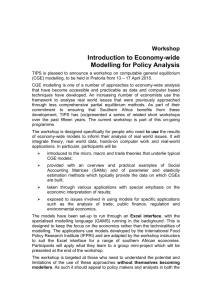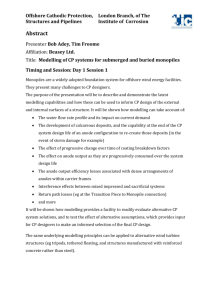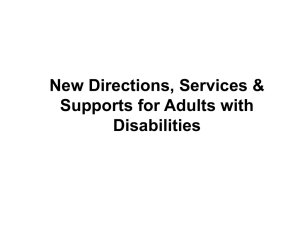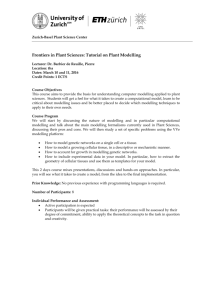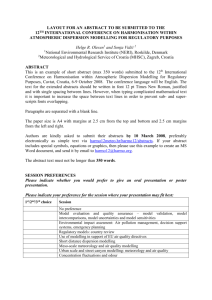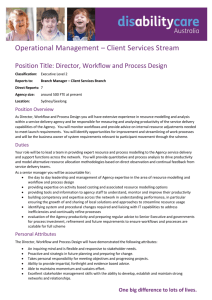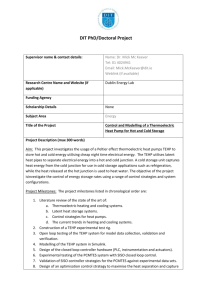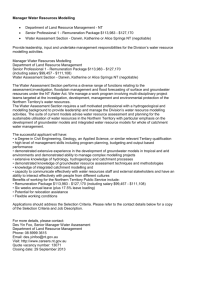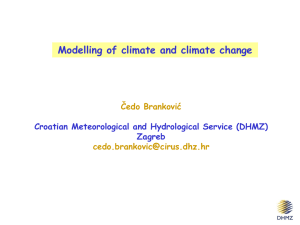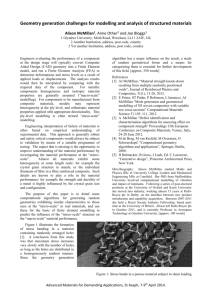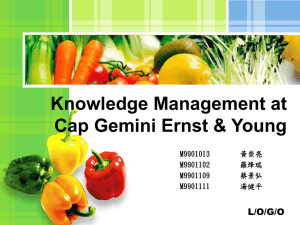Introductory Course on Computable General Equilibrium
advertisement
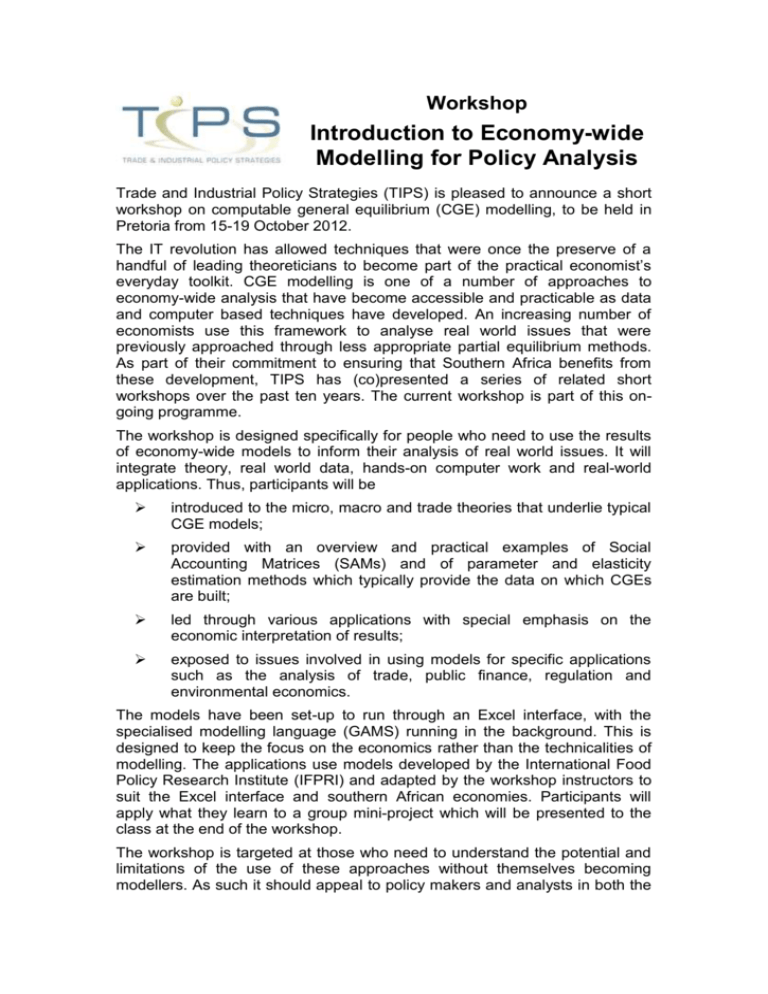
Workshop Introduction to Economy-wide Modelling for Policy Analysis Trade and Industrial Policy Strategies (TIPS) is pleased to announce a short workshop on computable general equilibrium (CGE) modelling, to be held in Pretoria from 15-19 October 2012. The IT revolution has allowed techniques that were once the preserve of a handful of leading theoreticians to become part of the practical economist’s everyday toolkit. CGE modelling is one of a number of approaches to economy-wide analysis that have become accessible and practicable as data and computer based techniques have developed. An increasing number of economists use this framework to analyse real world issues that were previously approached through less appropriate partial equilibrium methods. As part of their commitment to ensuring that Southern Africa benefits from these development, TIPS has (co)presented a series of related short workshops over the past ten years. The current workshop is part of this ongoing programme. The workshop is designed specifically for people who need to use the results of economy-wide models to inform their analysis of real world issues. It will integrate theory, real world data, hands-on computer work and real-world applications. Thus, participants will be introduced to the micro, macro and trade theories that underlie typical CGE models; provided with an overview and practical examples of Social Accounting Matrices (SAMs) and of parameter and elasticity estimation methods which typically provide the data on which CGEs are built; led through various applications with special emphasis on the economic interpretation of results; exposed to issues involved in using models for specific applications such as the analysis of trade, public finance, regulation and environmental economics. The models have been set-up to run through an Excel interface, with the specialised modelling language (GAMS) running in the background. This is designed to keep the focus on the economics rather than the technicalities of modelling. The applications use models developed by the International Food Policy Research Institute (IFPRI) and adapted by the workshop instructors to suit the Excel interface and southern African economies. Participants will apply what they learn to a group mini-project which will be presented to the class at the end of the workshop. The workshop is targeted at those who need to understand the potential and limitations of the use of these approaches without themselves becoming modellers. As such it should appeal to policy makers and analysts in both the public and the private sectors, to students and to academics. The workshop will also provide a foundation for those who wish to become modellers by taking future courses on actual modelling techniques. No previous exposure to CGE modelling is required, although it will be an advantage if participants be familiar with SAMs and have a good understanding of Excel. Workshop leaders are Dirk Ernst van Seventer and Rob Davies. Workshop fees (which includes teas, coffees and lunches): R9,000 for SA resident participants, R9,000 for African participants and R14,000 for other participants. Registration closing date is Friday 10 August 2012. Seats will be reserved until the payment closing date of 7 September 2012. The offering of the workshop is dependent on attracting a minimum number of 15 students by the time of the payment closing date while the maximum number of students is 20. Note that unfortunately, TIPS cannot allow for participation without payment, allow for payment after the workshop accept purchase orders Please do not apply if any of the above is relevant. Moreover, TIPS’ invoice documentation (tax clearance, bank clearance etc) will only be send on request by registered post. Thus, it is important to factor-in sufficient time for these processes. Otherwise, if you are interested in attending this workshop please send a short CV to: Dirk Ernst van Seventer Email: denves@xtra.co.nz or Rob Davies Email: robdavieszim@gmail.com
